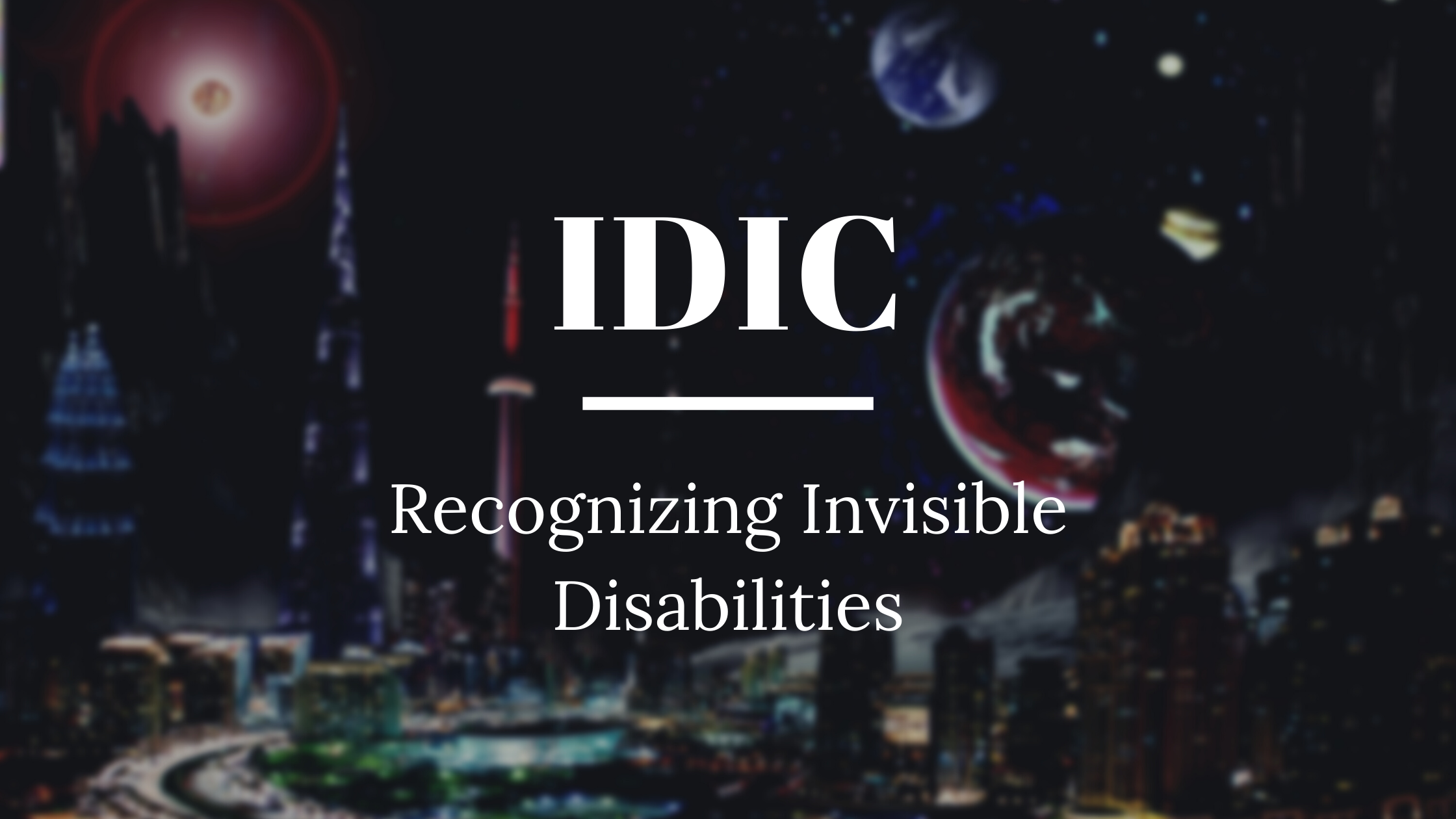Greetings STARFLEET,
This week in the IDIC discussions, let’s examine the idea of disability. Some disabilities have physical manifestations, like multiple sclerosis, that anyone can recognize. However, there are also disabilities that have no physical signs.
These invisible disabilities are not generally recognized as being disabilities. Unfortunately, this also leads to a lack of accommodation and understanding in most parts of society. It’s also easy for people to not realize the impact of their casual comments.
For example, let’s look at Fibromyalgia, which affects 2% of the adult population in the United States. Symptoms include pain, fatigue, brain fog, and more. None of these have any physical markers, so people with this condition are often told they are simply lazy and lying when they cannot work full-time.
Another example is traumatic brain injuries (TBIs). Depending on where the TBI is in the brain, it can cause different symptoms so there is no easy way to recognize one without a CT or MRI. Depending on the person with the TBI, they may face suggestions that they need to put more effort into overcoming its effects or to try a therapy that has no scientific proof.
Those examples do not touch on the complexities of mental health, the uncertainty of rare diseases, or the variation among people who cannot seek a diagnosis. How we discuss disability matters not because of who might hear but because being considerate is the right thing to do.
Before making a value judgment, consider what we cannot see. Before making a generalization like “everyone on disability is just milking it,” understand that it’s not a choice. If someone is using an accommodation, it’s not a reason to be jealous or other the person.
Hidden disabilities are no more voluntary than any other variety. Understanding and tolerance are the best way forward. As an organization, we can make that happen within our chapters and promote tolerance beyond our group.
Be Kind, STARFLEET.


Well put.
As someone with an as yet undiagnosed pain disorder(it’s not arthritis according to thorough blood work, but it acts similarly) standing or walking is excruciating after a while. Comments like “but you normally seem just fine!” And such are rather frustrating. Like…walk a mile in my shoes…you won’t think that anymore. If I tell you I need to sit etc it’s because the pain has progressed to the point I can no longer tolerate it, NOT that the pain just started.